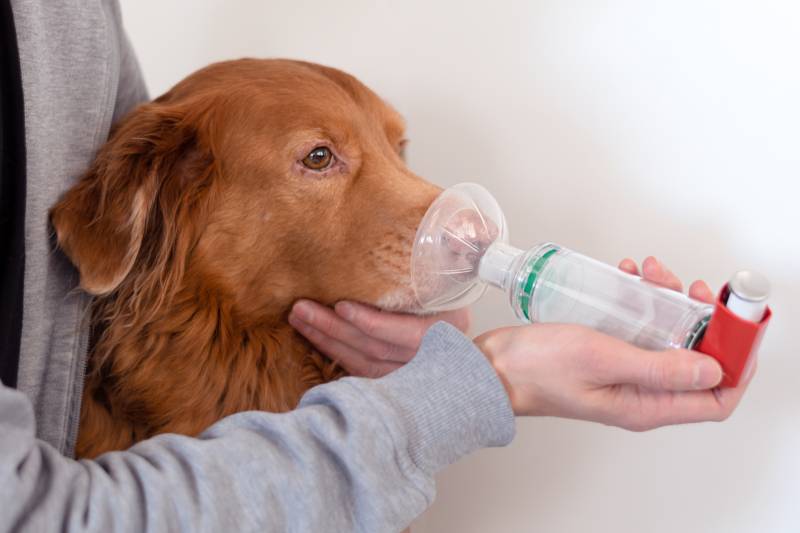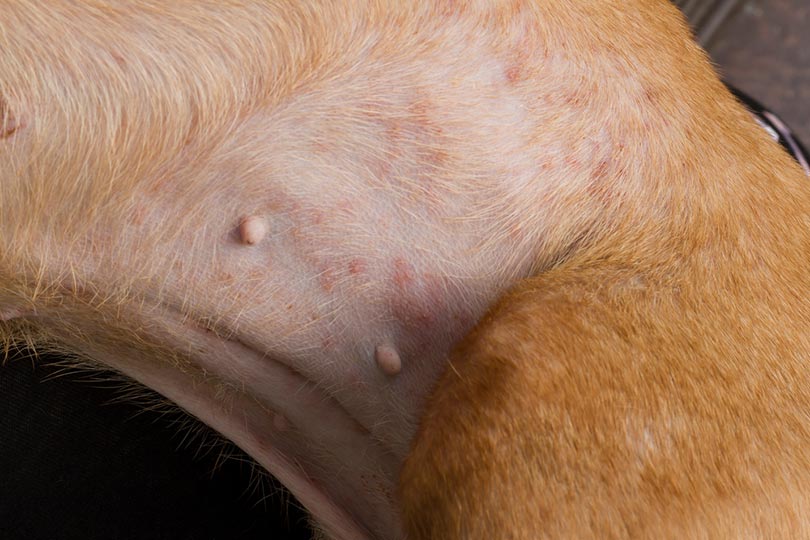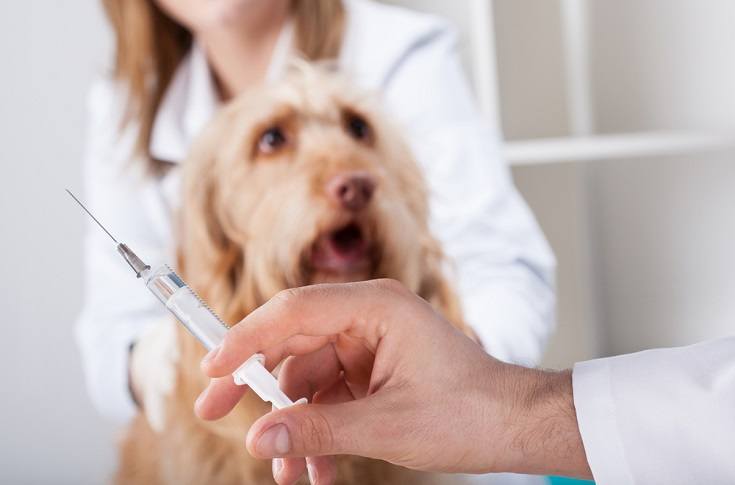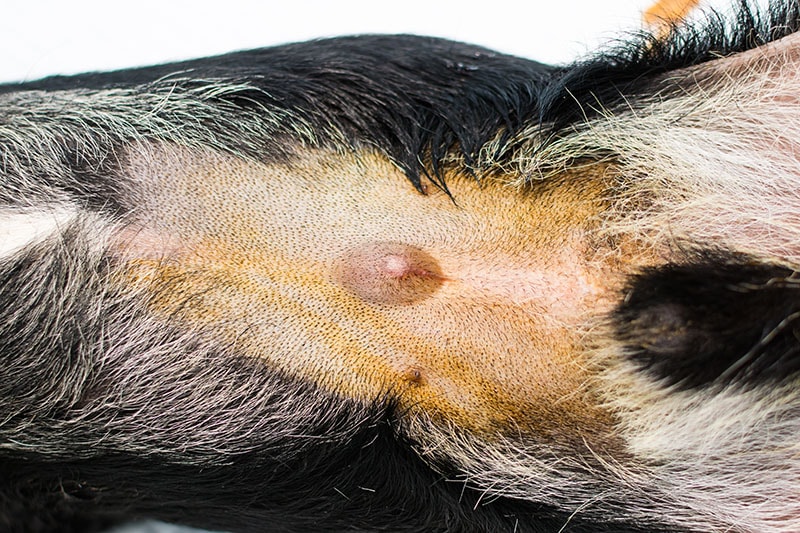Asthma in Dogs: Signs, Causes & Treatments (Vet Answer)
Updated on

Most people are familiar with asthma occurring in people or in cats. Asthma in these species results in the narrowing of airways as a response to an irritant. Dogs can have a similar condition occasionally referred to as canine asthma; however, a more correct term is allergic bronchitis. Continue reading below to learn more about allergic bronchitis in dogs.
Asthma vs Allergic Bronchitis
Asthma is a condition in which the lower airways narrow or undergo bronchoconstriction because of an inhaled allergen or irritant causing an inflammatory reaction. This response can be seen commonly in humans, cats, and horses.
In dogs, allergic bronchitis causes the lower airways to thicken and fill with mucus because of exposure to an irritant. Bronchoconstriction is appreciated in canines to a lesser extent. These changes in the lower airways lead to similar signs that are seen in animals who experience asthma or narrowing of the bronchi.

Signs of Asthma/Allergic Bronchitis in Dogs
Dogs experiencing asthma may exhibit:
- Coughing
- Wheezing
- Excessive panting
- Mucus production
- Labored breathing
What Are the Causes of Asthma/Allergic Bronchitis in Dogs?
Allergic bronchitis can occur from any irritating allergen or stimulant. Examples of allergens that may cause this condition include pollen or grass. Aerosols, smoke, dust, mold, and perfumes could also be examples of respiratory irritants. An allergic reaction to parasites can also occur.

How Is Asthma or Allergic Bronchitis Diagnosed?
Dogs that have been coughing or experiencing abnormal breathing should be evaluated by a veterinarian. Your veterinarian will take time to listen to the patient’s history and perform a thorough physical examination.
Diagnostic Tests
After the examination, the veterinarian will recommend diagnostic tests to better determine the underlying cause. Radiographs will typically be done at first. Unfortunately, radiographs may not always provide a diagnosis, and additional tests may be recommended.
The doctor may also recommend sampling fluid from the airways to check for infection and inflammation through a transtracheal wash or lavage. This process involves anesthetizing the patient and placing sterile saline into the lungs via an endotracheal tube. The fluid is then removed from the lungs with suction and evaluated under the microscope, typically by a pathologist. Samples removed from patients with allergic bronchitis will often have an increased number of eosinophils, a particular type of white blood cell that is prominent in allergic conditions, present within their sample.
In other situations, bronchoscopy may be recommended. Bronchoscopy is when a camera is placed into the respiratory tract of an anesthetized patient to evaluate the bronchi, or the portion of the respiratory tract branching from the trachea to the lungs. In patients with allergic bronchitis, the bronchi may exhibit signs of inflammation and increased mucus production. Bronchoscopy is another modality in which biopsy samples or fluid analysis can be collected in coughing patients.
Bloodwork is routinely recommended and often reveals a systemic increase in eosinophils.

How Do I Care for a Dog With Asthma/Allergic Bronchitis?
Medications
Dogs diagnosed with allergic bronchitis are often treated with steroids to help reduce inflammation. Additionally, if the patient is experiencing bronchoconstriction, which is not as pronounced in dogs as it is in cats, bronchodilators may be prescribed. There are oral options like theophylline or aminophylline. Alternatively, an albuterol inhaler may be recommended as it provides quick relief.
Dogs experiencing allergic bronchitis may also benefit from specific allergy immunotherapy.

Supportive Therapy
Care should be taken to remove any possible irritants from the environment, including plug-ins, smoke, perfumes, etc. Avoid using aerosols within the home.
FAQ
Is allergic bronchitis the same as chronic bronchitis?
Allergic bronchitis can lead to chronic bronchitis if the clinical signs are prolonged.
Is allergic bronchitis contagious?
No, allergic bronchitis is not contagious as it is caused by allergens or irritants. Multiple animals within the household can have similar signs, however. It is important to differentiate allergic bronchitis from other causes of cough or respiratory illness. Infectious tracheobronchitis, commonly known as “kennel cough” is contagious however, this is caused by viral or bacterial pathogens, rather than an allergic reaction.
Conclusion
Dogs experiencing cough or abnormal breathing may be experiencing allergic airway disease. Allergic bronchitis behaves differently in dogs than asthma does in cats. It is important that your pet is evaluated by a veterinarian quickly if signs of cough or abnormal breathing are noted. There are many different disease processes that can cause a cough or similar respiratory signs, so diagnostic tests will be pertinent to determine a correct diagnosis. Fortunately, patients diagnosed with allergic bronchitis can experience improvement of clinical signs with appropriate treatment and preventative steps.
Featured Image Credit: Hanna Lepisto, Shutterstock













